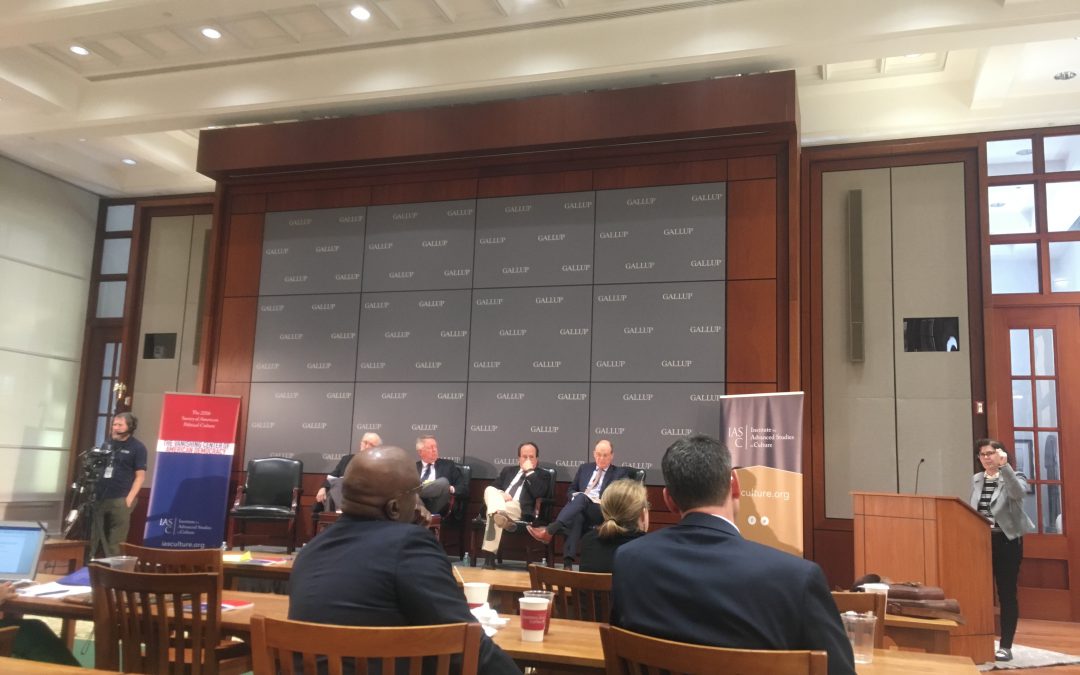WASHINGTON — A new survey by Gallup finds that Americans who make up Republican presidential nominee Donald Trump’s base will still be relevant politically after the Nov. 8 election and may be part of a new normal.
The University of Virginia Institute for Advanced Studies in Culture report, titled “The Vanishing Center of American Democracy,” was unveiled Wednesday. It surveyed a nationally representative group of 2,000 over the month of August.
James Davidson Hunter, executive director of the institute, Carl Desportes Bowman, the institute’s survey research chief, ”White Trash” author Nancy Isenberg, and New York Times columnist Thomas Edsall analyzed the report.
“Day by day, week by week, we hear such new and unfamiliar things compared to previous elections,” Hunter said. “But the findings of this survey tell a story that is more about continuity than change. As long as the social, cultural and political conditions described above are in place, we are likely to see more election years like 2016.”
The study found that one slice of the American electorate, about one third of white men, is especially entrenched in the belief that government does not care about people like them. This group tends to be of lower income status, a lower level of education and a higher level of religious conservatism.
Hunter, who has written eight books and holds a Ph. D. in sociology from Rutgers, said Trump’s ability to tap into that group’s desires—“dealing with a rigged economic system, returning to a prosperous manufacturing economic base and ending political correctness” –has helped his political success.
“This is a general archetype based on data, it’s not a stereotype or a caricature,” Bowman said in an interview. He said disaffected voters – those who feel the system no longer works for them — make up a majority of Trump’s voters.
If Trump has tapped into this group’s disaffection, Democratic nominee Hillary Clinton has helped mobilize it. Hunter said the social elites she exemplifies condemn some in this segment of the population as bigoted, racist, homophobic and behind-the-times.
“They have felt the sting and personal humiliation of social deplorability long before Hillary Clinton spoke of such things,” Hunter said.
Edsall, a onetime Washington Post political reporter, argued that demographic and cultural change over the last few decades has altered the power dynamics of population groups, leading some to feel they are losing out.
“The most accurate way to look at Trump electorate is not to demonize them, but to recognize that they have a legitimate outlook on their relative position in society,” Edsall said. “Many Trump voters see themselves as culturally and economically moving down the ladder. As women and nonwhites rise, some men and whites feel they are relatively descending. Conservatism has become the ideology of the underdog.”
Karlyn Bowman, a senior fellow at the American Enterprise Institute who researches public opinion and polls, said in an interview that if Trump, while bucking his party establishment, gets 38 or 40 percent of the popular vote, it will be a significant enough segment of the population to warrant GOP soul-searching about the future of the party. She added that while no one can be certain until after the election, there is significant evidence that the Trump base is distinct from the Republican party of the past.
“The working class has been moving in a Republican direction over the past few decades so they are relatively new to the Republican party,” Bowman said. “If the Trump base is of a lower socioeconomic status and more religious, that’s very different from the Perot voters of the 1990s.”

